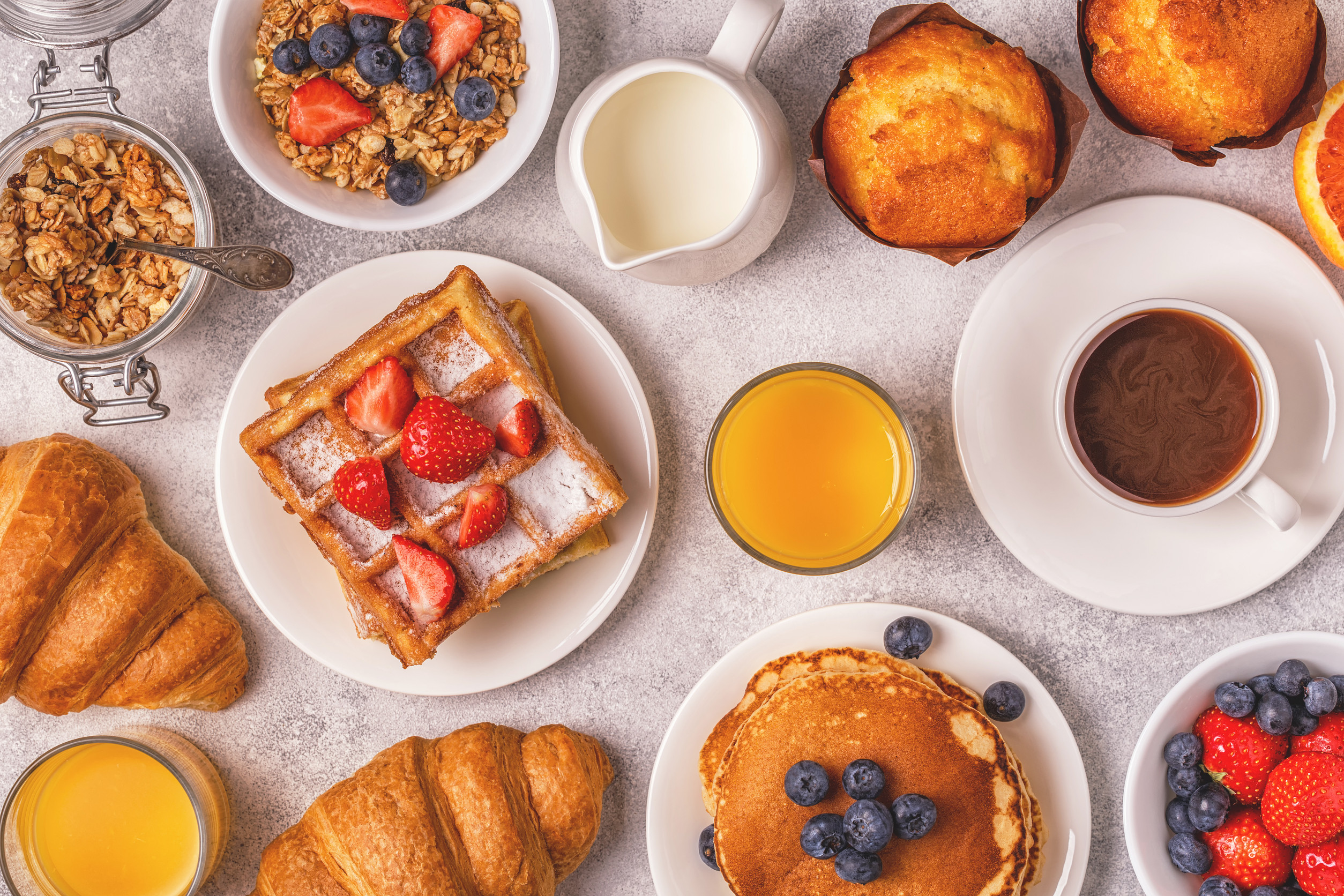
We’ve been told breakfast is the most important meal—yet not all breakfast foods are actually good for starting the day. Some popular choices can send your energy plummeting, mess with your hunger, or even raise health risks. If you’re reaching for processed pastries, sugary cereal, or fruit juice first thing, you might feel refueled for a few minutes—but then the crash comes. This article breaks down eight common breakfast foods that often do more harm than good. Learn which ones to ditch and why smarter choices matter for energy, hunger, and long-term wellness.
1. Sugary Cereals
Sugary cereals may look fun and convenient, but they’re often ultra‑processed and packed with added sugars. A bowl can raise your blood sugar quickly, then leave you crashing before mid‑morning. Despite fiber or vitamin claims, many have more sugar per serving than dessert cookies. They’re also low in protein and healthy fats, failing to sustain fullness or steady energy. Unless you pair them with protein and whole grain-rich sides, they’re a poor breakfast pick.
2. Muffins or Pastries
Muffins and pastries are basically cake with sprinkles on top—the typical recipes use refined flour, sugar, and oil, with little nutritional benefit. Portion sizes balloon calorie counts—some contain as many calories as a full lunch. They lack fiber and protein, meaning hunger returns fast. The high glycemic load promotes insulin spikes and subsequent crashes. Enjoy them occasionally—but don’t mistake them for a nutritious breakfast.
3. Pancakes, Waffles, or French Toast
Pancakes, waffles, and French toast are classic comfort breakfast foods, but they’re typically made from refined grains and topped with sugary syrup. They deliver a big sugar rush followed by low energy and hunger. Protein is minimal unless you add eggs or yogurt on the side. Too often, they’re paired with butter or sugary fruit compote, stacking on empty calories. Unless you choose whole grain versions and reduce added sugar, they’re more indulgence than nourishment.
4. Buttered White Toast
Butter on white toast adds fat and flavor—but little else in terms of nutrients. White bread is made from refined flour that lacks fiber and causes sharp blood sugar spikes. Toasting may reduce certain nutrients and produce acrylamide, a possible carcinogen, especially if browned too darkly. With no protein or fiber, buttered toast alone won’t keep you full for long. It might taste simple and comforting—but as a standalone breakfast food, it falls short of sustaining energy.
5. Fruit Juice or Smoothies
Fruit juice—whether from concentrate or fresh—is high in sugar and low in fiber, causing rapid insulin spikes similar to soda. Smoothie bowls may seem healthy but often contain blended fruit, sweeteners, granola, and nut butter—racking up hundreds of calories fast. Because fiber is often stripped or diluted through blending, satiety is poor, and hunger returns sooner. Even 100% juice lacks the bulk that whole fruit delivers. Better to eat whole fruit plus a protein‑based side than drink fruit juice uninhibited.
6. Flavored Yogurt Cups
Flavored yogurts are marketed as nutritious, but many contain high amounts of added sugars and artificial flavors. Despite added calcium and probiotics, sugar content often tracks like a dessert. Low-fat or nonfat versions may have sugar to compensate, creating a high‑glycemic, low‑sustaining snack. Even fruity yogurt lacks enough protein or fiber unless paired with nuts or seeds. Opt for plain Greek yogurt and sweeten with fresh fruit or honey instead for better balance.
7. Processed Breakfast Meats
Breakfast meats like bacon and sausage are high in saturated fats, sodium, and preservatives—including nitrates tied to heart risk. They may taste satisfying, but they don’t sustain fullness without healthy proteins or fiber. Eating them daily has links to increased inflammation and cardiovascular disease. Even as part of a bigger breakfast, relying on processed meats sets a poor nutritional foundation. Consider lean protein alternatives and limit processed meats to occasional treats.
8. Toaster Pastries (Pop Tarts etc.)
Toaster pastries seem like quick fixes, but they’re heavy on refined carbohydrates, sugar, and unhealthy oils—and light on protein or fiber. They create early energy boosts followed by rapid hunger and cravings. Packaged convenience often hides ingredients like high‑fructose corn syrup, emulsifiers, and other ultra‑processed additives. These pastries rarely satisfy until your stomach starts grumbling again. They’re breakfast foods in name only—not built to nourish or fuel your day.
Smart Breakfast Foods Give Real Energy
Choosing the right breakfast foods means focusing on balance—fiber, protein, healthy fats, and whole or minimally processed ingredients. Skipping sugary cereals or pastries for options like oatmeal with nuts, eggs with veggie toast, or Greek yogurt and berries can stabilize energy and satiety all morning. Minimally processed whole foods support long-term health much better than empty calories that spike and crash. Breakfast shouldn’t just taste good—it should serve your energy and wellness goals. A better foundation sets up a better day.
What breakfast food has surprised you with how unsatisfying or unhealthy it felt? Share your experiences or recipes you love in the comments below!
Read More
8 Popular Breakfast Items With Ingredients Banned Abroad
7 Breakfast Brands Being Pulled From Shelves Across the Country
The post 8 Breakfast Foods That Aren’t Good for Breakfast appeared first on Grocery Coupon Guide.







